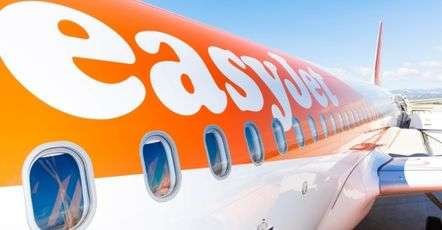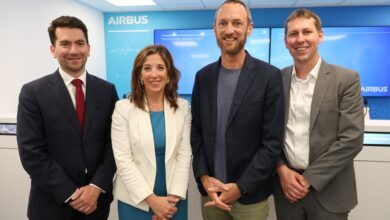easyJet to fly hydrogen planes in the 2030s, SAF is the interim step
SAFs continue to be the key technology for long-haul aviation to reduce its impact on the environment

Decarbonisation seems to have reset the technological developments in aviation, making the future more complex and challenging. The smaller aircraft industry has now increased its bets on hydrogen fuel cell technology and electrification, though long hauled aircraft will likely tilt towards sustainable aviation fuels (SAF), albeit at slow speed.
A significant advantage of using SAF is that aircraft engines do not need to be redesigned to use them, while SAF can also be blended with conventional fuels. According to the European Commission, SAF currently accounts for just 0.05% of jet fuel use in the EU, and without further regulation, the share is expected to reach just 2.8% by 2050.
Europe’s airlines are united to support the 2050 net-zero target; now, the question of whether to extend the green fuel blending obligation to long-haul flights is revealing some cracks in their unity. Airlines are already divided over the inclusion of long haul, whereas Eurocontrol estimates that just 6% of flights, those over 4000 km in length, create half of the aviation’s CO2 emissions.
In early March 2021, a group of organisations which included Ryanair and easyJet sent a letter to Vice-President of the European Commission Vice-President Frans Timmermans and Transport Commissioner Adina Vălean calling to cover long-haul emissions by the EU’s Sustainable Aviation Fuels mandate. The European Commission will soon release the ReFuelEU Aviation regulation to support green flights, but low-cost airlines worry that large polluters (long flights) will be exempt from the requirement.
Johan Lundgren, CEO of easyJet, said, “SAFs are only an interim step for shorthaul carriers. Our ultimate solution is zero-emission propulsion which is why it is crucial that there are aviation-specific incentives for zero-emissions technologies like electric and hydrogen and why we must avoid all resources being drawn into SAFs, which don’t fully solve the problem.”
At the end of 2019, easyJet signed a Memorandum of Understanding with Airbus for research into infrastructure requirements for electric, hybrid-electric and hydrogen aircraft. In September 2020, Airbus unveiled three different hydrogen-powered concept planes; turbofan, turboprop and blended wing body. “We are optimistic that we will be regularly flying our customers on electric, hydrogen or hybrid planes by the mid to late-2030s,” easyJet told H2 bulletin.
This is part 6 of a 6-part series on hydrogen in the aviation sector that will run every Friday. If you have any questions or want to share your views, please feel free to contact us at editor@h2bulletin.com or +44 (0) 208 123 7812
